Introduction
In a rapidly evolving digital landscape, Progressive Web Apps (PWAs) have emerged as a powerful tool, bridging the gap between traditional web experiences and native mobile applications. Leading industry giants across various sectors are leveraging the capabilities of PWAs to enhance user engagement, streamline functionality, and provide a seamless, app-like experience without the need for downloads. From Pinterest's visually rich discovery engine to Spotify’s dynamic music streaming, and from Alibaba's high-engagement e-commerce platform to Twitter's enhanced mobile web experience, PWAs are revolutionizing how users interact with digital content.
This article delves into how major brands like Tinder, Uber, Telegram, Google Maps, Airbnb, and Starbucks are utilizing PWAs to create more reliable, efficient, and engaging user experiences, showcasing the transformative potential of this innovative technology.
Pinterest: Visual Discovery Engine
Pinterest capitalizes on the capabilities of Progressive Web Apps (PWAs) to deliver a visually rich and engaging experience for individuals. These apps are designed to be fast, reliable, and versatile, offering individuals the benefits of both web and mobile applications. With Pinterest's PWA, individuals can effortlessly save content, create boards, and share ideas, all while experiencing fast load times and an app-like interface. One standout feature is the PWA's ability to function offline, a critical aspect achieved through service workers that cache essential resources. This ensures that individuals can continue to explore and interact with content even in low-network conditions, making the experience both reliable and enjoyable.
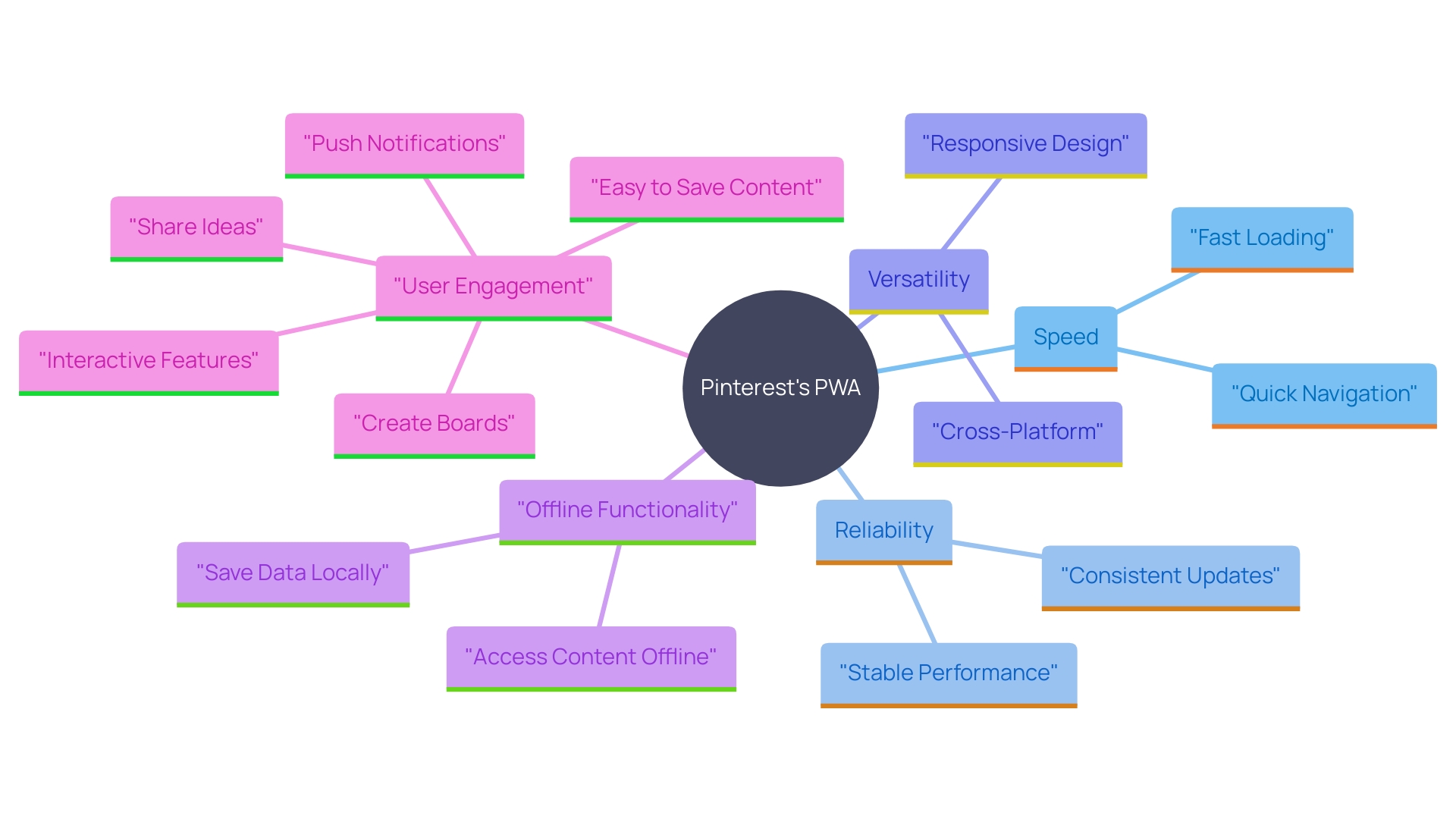
Spotify: Rich Media Streaming
Spotify's Progressive Web App (PWA) revolutionizes music streaming by eliminating the need for a native app, providing seamless access through any web browser. The PWA ensures rapid load times, offline listening capabilities, and an intuitive interface, significantly enhancing engagement and satisfaction. This shift aligns with the broader trend in the music-tech market, where advancements in technology and high-speed internet have driven the rise of on-demand music services. As the landscape evolves, features like personalized playlists and on-demand accessibility have become essential in meeting modern consumer expectations, further solidifying Spotify's commitment to innovation in the digital music age.
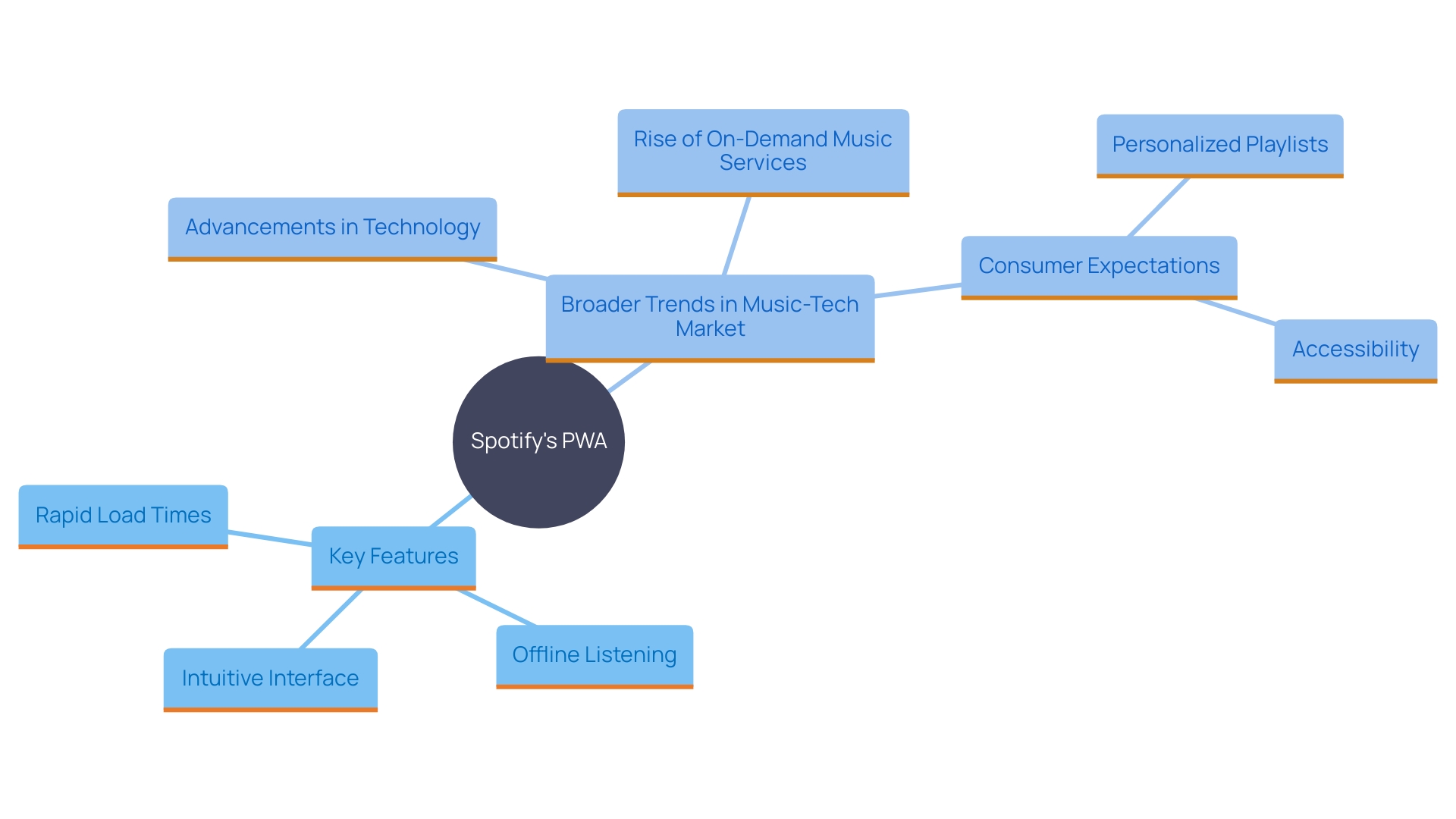
Alibaba: E-commerce Platform with High Engagement
Alibaba’s Progressive Web App (PWA) transforms the online shopping experience, providing lightning-fast loading speeds and an engaging interface that captivates individuals from the first click. By integrating features such as push notifications and offline access, Alibaba ensures that individuals remain engaged and are encouraged to explore products more actively. This approach addresses critical performance aspects, akin to a waiter efficiently managing orders and deliveries without delays, thereby enhancing customer satisfaction and engagement. As Keith Kirkpatrick, research director at The Futurum Group, points out, “They want to make sure it’s in stock, and that it will be ready at 10:30, so they can go there at 10:30 and it’s there.” This smooth combination of physical and digital channels is now a necessity for brands striving for efficiency and customer-centricity.
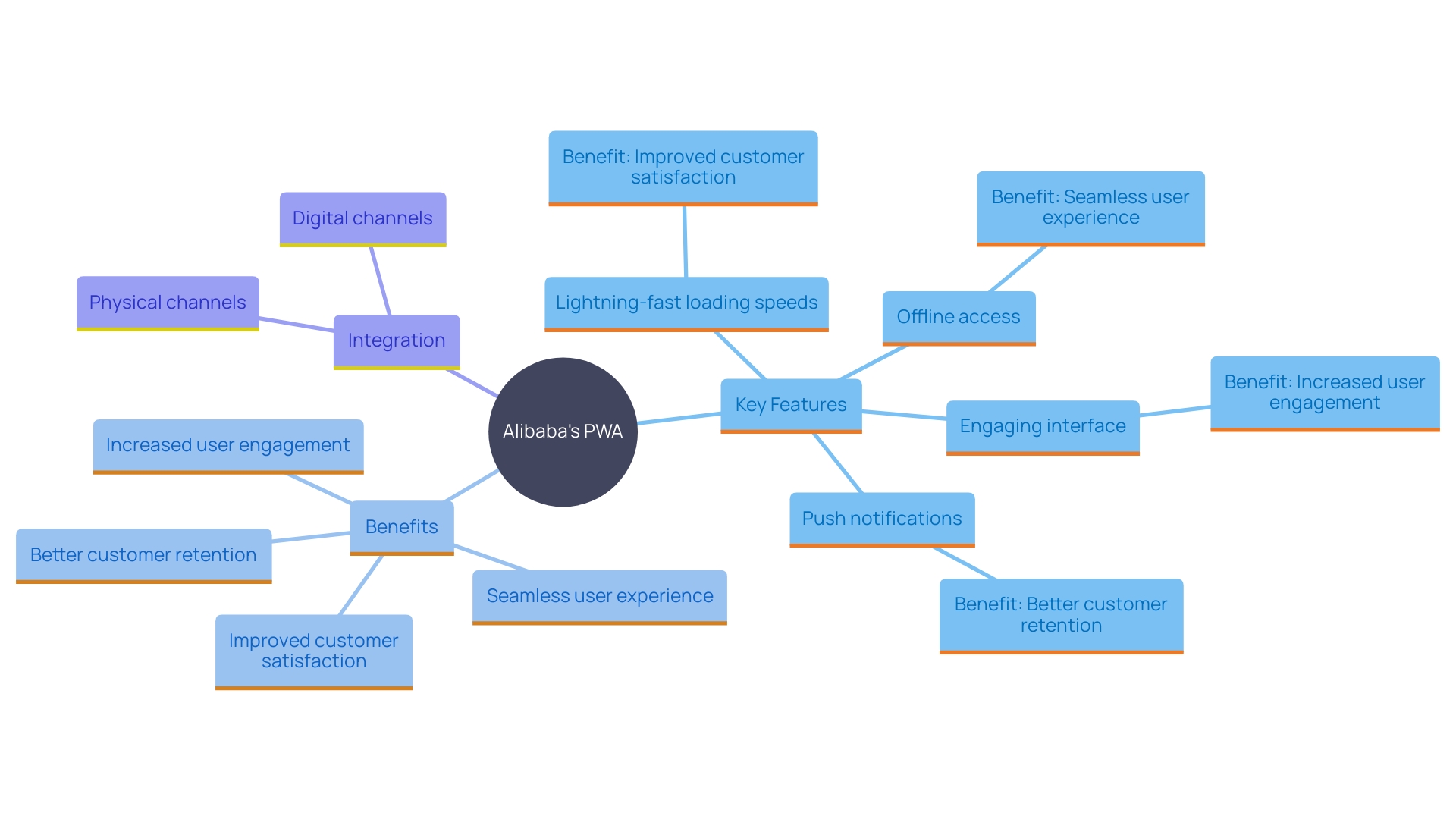
Twitter: Enhanced Mobile Web Experience
Twitter's Progressive Web App (PWA) is transforming the method individuals access and interact with their feeds. By combining the best of web and mobile app functionalities, Twitter's PWA offers rapid load times, seamless navigation, and offline capabilities. This ensures that individuals can engage with tweets and share their thoughts effortlessly, even in low network conditions. Consequently, Twitter has developed a more dependable and captivating platform, improving the overall interaction.
Tinder: Interactive Dating Experience
Tinder transformed the dating landscape with its Progressive Web App (PWA), enabling individuals to effortlessly swipe and connect with potential matches without requiring the download of a dedicated application. This innovation is crucial in a landscape where 32% of people in Russia use dating sites and apps. The PWA's lightweight design guarantees fast load times and its adaptable interface offers a smooth, engaging interaction across various devices, which significantly enhances retention and engagement. By combining the best features of web and mobile applications, Tinder's PWA caters to individuals' desire for efficiency and accessibility, making it easier for people to find connections in any location, even with low network conditions.
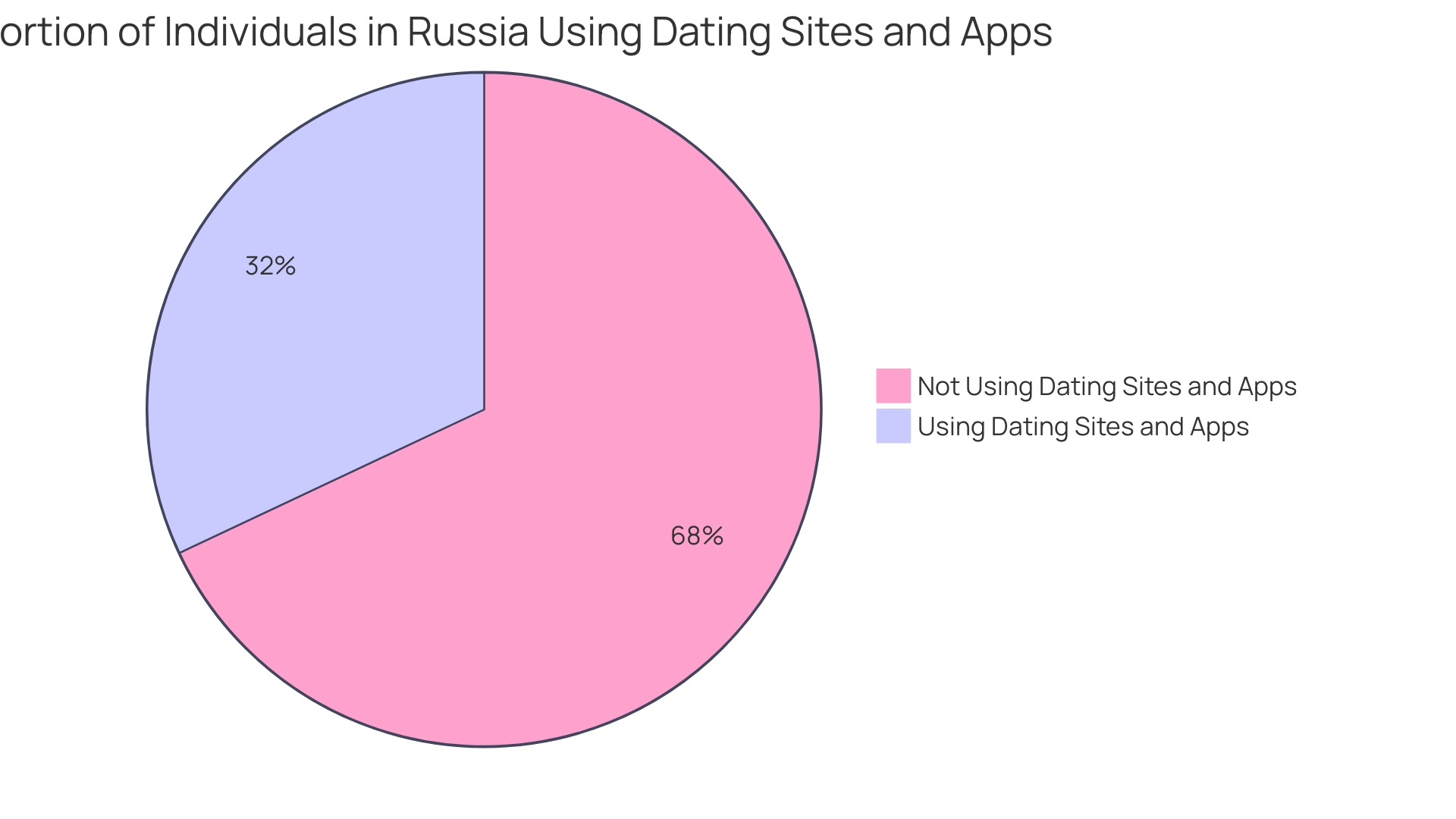
Uber: Efficient Ride-Hailing Experience
Uber’s Progressive Web App (PWA) revolutionizes the ride-hailing process by leveraging modern web technologies to deliver a native app-like feel directly in the browser. This approach significantly reduces loading times and optimizes performance for mobile devices, ensuring a seamless and efficient experience for individuals. As a result, individuals can swiftly book rides without the requirement of downloading an app, making the process more convenient and accessible. This efficiency not only enhances customer satisfaction but also encourages repeat usage, solidifying Uber's position in the competitive ride-hailing market.
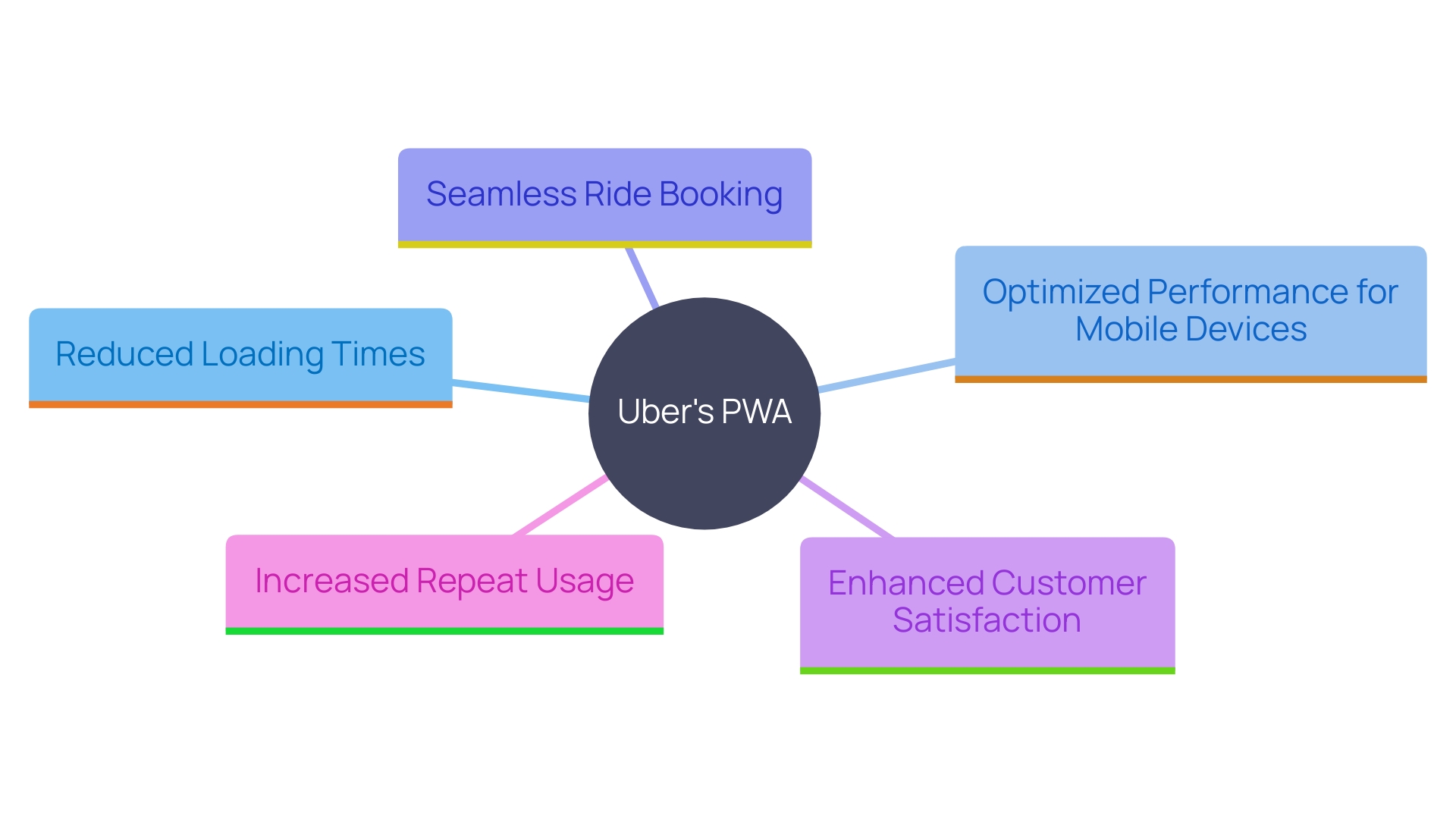
Telegram: Fast and Reliable Messaging
Telegram’s PWA provides a swift and responsive communication platform, ensuring individuals can engage effortlessly. With support for real-time messaging and multimedia sharing, it stands out as a premier choice for dynamic and interactive conversations.
Google Maps: Lightweight Navigation
'Google Maps' PWA provides individuals with essential navigation features through a streamlined interface that prioritizes usability. By providing swift access to maps, directions, and points of interest, it allows individuals to explore their surroundings effortlessly. The PWA technology guarantees reliability even in low network conditions, enhancing the overall experience. With personalized landmarks like home, office, and favorite coffee shops highlighted, users can navigate familiar locations with ease. The integration of custom icons and emojis further simplifies identifying key spots on the map. This seamless blend of functionality and user-friendly design underscores the transformative potential of Progressive Web Apps in enhancing digital navigation.
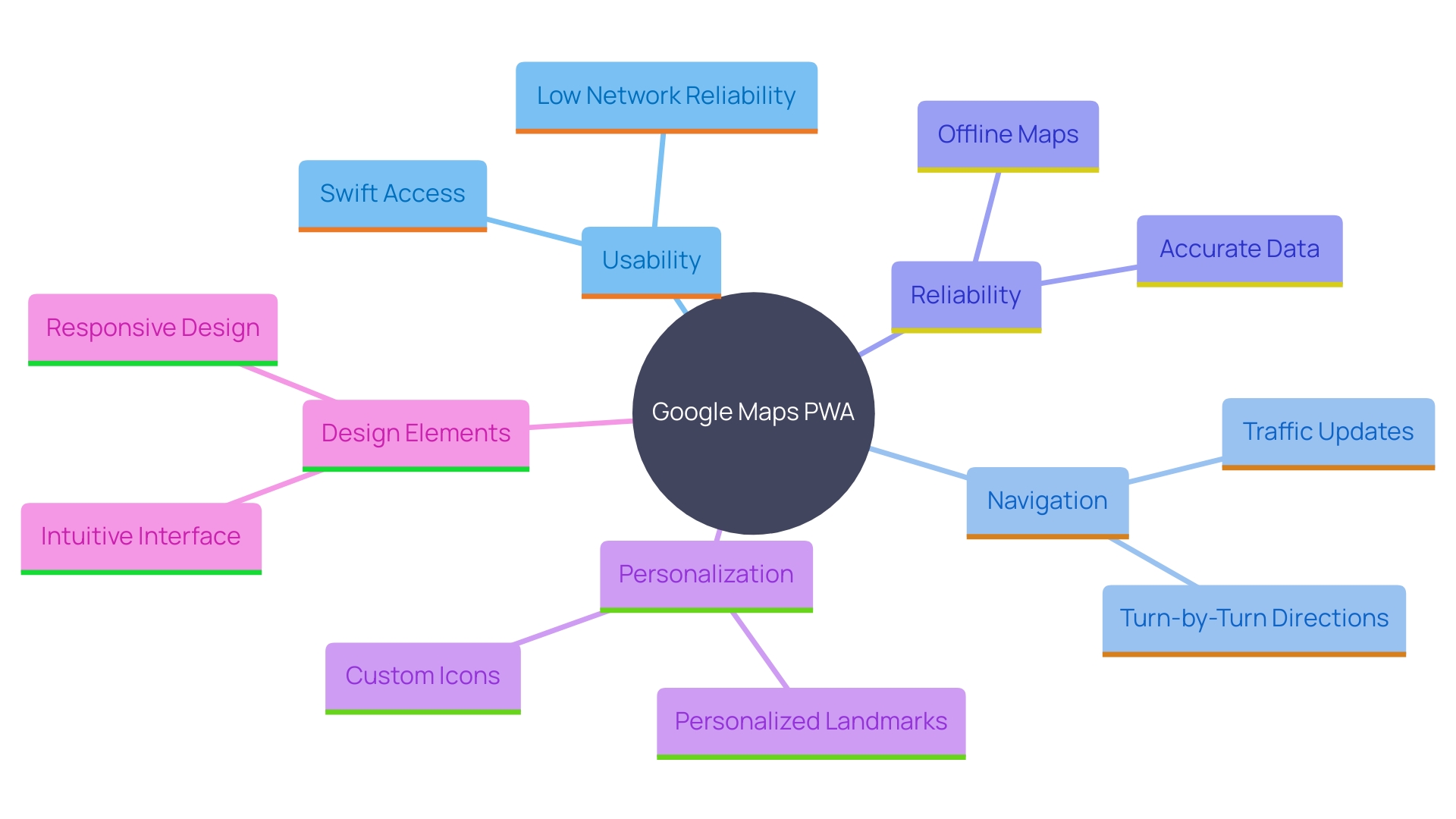
Airbnb: Interactive Hospitality Experience
Airbnb’s Progressive Web App (PWA) significantly enhances the booking process, providing swift access to listings and detailed reviews. Its responsive design and interactive features simplify the process of finding and booking accommodations, which in turn enhances engagement. Beyond its digital presence, Airbnb's commitment to accessibility is noteworthy. Last year, the company launched its Adapted category, providing travel options for everyone. This initiative aligns perfectly with the increasing demand for personalized and seamless journeys. The PWA ensures that individuals can swiftly see their reservations, addressing the common anxiety of reassurance-seeking after booking. By focusing on user-friendly and accessible solutions, Airbnb sets a benchmark in the hospitality industry, demonstrating how technology can enhance customer satisfaction and engagement.
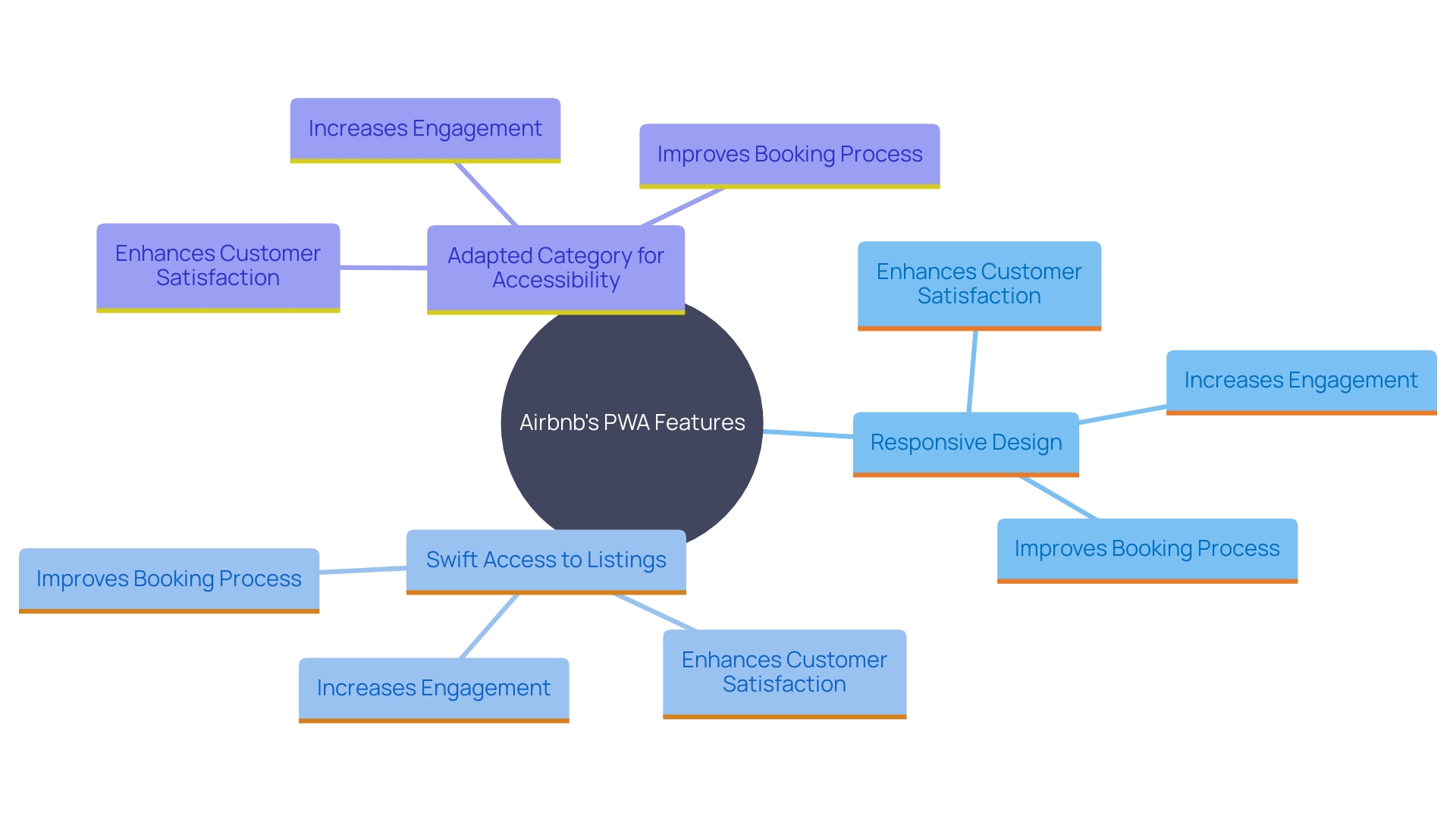
Starbucks: Seamless Ordering Experience
'Starbucks' PWA transforms the customer ordering process by enabling swift and convenient order placements. Designed with a user-friendly interface and intuitive navigation, the app significantly boosts customer engagement. This not only enhances the overall user experience but also drives repeat orders, contributing to increased customer loyalty. The PWA exemplifies how a seamless digital tool can elevate a brand's interaction with its customers while supporting the company's mission to nurture the limitless possibilities of human connection.
Conclusion
The exploration of Progressive Web Apps (PWAs) across various leading brands highlights their significant impact on user engagement and overall experience. Pinterest, Spotify, Alibaba, Twitter, Tinder, Uber, Telegram, Google Maps, Airbnb, and Starbucks have all harnessed the capabilities of PWAs to create fast, responsive, and reliable platforms that cater to modern consumer expectations.
Each brand has tailored its PWA to meet specific user needs, from Pinterest's visually appealing interface to Spotify's rich media streaming capabilities. Alibaba's emphasis on high engagement through notifications and offline access showcases the importance of keeping users connected and informed. Similarly, Uber's focus on efficiency in the ride-hailing process demonstrates how PWAs can streamline services without sacrificing performance.
Moreover, the emphasis on accessibility and user-friendly design is evident in Airbnb and Starbucks’ approaches, both of which prioritize customer satisfaction by simplifying the booking and ordering processes. This commitment to enhancing the user experience through technology not only fosters loyalty but also sets a benchmark for other brands in the industry.
In summary, the adoption of PWAs signals a transformative shift in how brands interact with users, offering a seamless blend of web and mobile functionalities. As the digital landscape continues to evolve, leveraging the potential of PWAs will remain essential for brands aiming to increase engagement, satisfaction, and ultimately, success in a competitive market.





